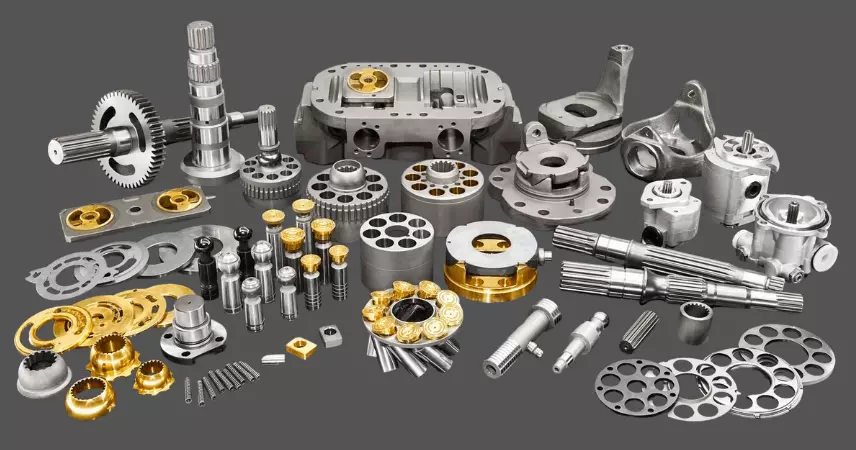+86-135 3388 0668

Explore how the gas-powered Hydraulic pump is changing industries with its efficiency and versatility. This article covers its benefits, uses, and how it is transforming various sectors such as construction, agriculture, and manufacturing.
Gas Powered Hydraulic Pump, Hydraulic Systems, Gas Powered Equipment, Industrial Power Solutions, Hydraulic Applications, Heavy Machinery, Construction Equipment, Agriculture Machinery, Portable Power, Hydraulic Tools.

In the world of industrial machinery and equipment, innovation plays a crucial role in ensuring efficiency and performance. One such innovation that has been revolutionizing various industries is the gas-powered hydraulic pump. This robust tool has proven itself indispensable in several fields, ranging from construction to agriculture, thanks to its impressive power and versatility.
A gas-powered hydraulic pump is an essential piece of equipment designed to harness the energy of a gasoline engine to generate hydraulic pressure. It uses this pressure to power a wide range of hydraulic tools and machinery, from compact devices to large industrial machines. In many situations, the gas-powered hydraulic pump offers an ideal solution where electricity or diesel power sources are unavailable or impractical.
Understanding the Basics of Hydraulic Pumps
Before diving deeper into the unique benefits of gas-powered hydraulic pumps, it is essential to understand the basics of hydraulic systems. At its core, a hydraulic system uses pressurized fluid to drive mechanical operations, such as lifting heavy loads or moving machinery. A hydraulic pump, in particular, serves as the heart of the system, converting mechanical energy into fluid energy to generate pressure.
The versatility of hydraulic pumps is well recognized in industries that require high force output in a compact, reliable form. Hydraulic systems power equipment like cranes, loaders, excavators, and agricultural sprayers, providing superior control and performance compared to traditional mechanical or electric systems.
The Rise of Gas-Powered Hydraulic Pumps
Gas-powered hydraulic pumps have taken the advantages of traditional hydraulic systems to the next level. Powered by gasoline engines, these pumps offer the same high performance as other hydraulic systems but with the added benefit of portability. Unlike electric-powered pumps, which require a stable electrical supply, gas-powered hydraulic pumps can operate in remote locations, making them ideal for construction sites, outdoor projects, or emergency response operations.
One of the primary benefits of a gas-powered hydraulic pump is its independence from an external power source. Many industries, especially those in rural or off-the-grid locations, face challenges with electricity availability. In such cases, the gas-powered hydraulic pump steps in as a game-changer, providing reliable power even in the most isolated areas.
Benefits Across Industries
Gas-powered hydraulic pumps have quickly gained traction in a variety of industries. Construction, for instance, is one of the largest sectors to benefit from these tools. On construction sites, workers need dependable power sources for their hydraulic tools, such as jackhammers, post drivers, and concrete vibrators. Gas-powered hydraulic pumps allow these tools to operate smoothly without the need for an electrical outlet, enabling uninterrupted work throughout the day. Furthermore, their compact and portable design makes them easy to transport from one location to another.
In the agricultural sector, gas-powered hydraulic pumps have proven to be indispensable for a wide range of applications. From powering irrigation systems to driving farm machinery such as tractors and harvesters, these pumps offer reliable power without the complexity of electric-powered systems. Farmers in remote locations can rely on the portability of gas-powered pumps to ensure that their operations run smoothly, regardless of access to an electrical grid.
Gas-powered hydraulic pumps are also crucial in the manufacturing industry, particularly in the areas of material handling and automation. These pumps provide the high-pressure hydraulic force required for machinery that moves, molds, and assembles products in factories. With their robust power output and mobility, they play a significant role in ensuring production lines run efficiently.
Applications in Heavy Machinery and Tools
Another key area where gas-powered hydraulic pumps shine is in heavy machinery and hydraulic tools. Whether it's powering an excavator’s arm, a backhoe's digging mechanism, or a forklift’s lifting system, the efficiency and portability of a gas-powered hydraulic pump make it the go-to choice for construction and industrial machinery.
Moreover, these pumps are not limited to large machines; they are also highly effective in powering smaller, portable hydraulic tools. Hydraulic wrenches, bolt cutters, and rescue tools used in emergency situations are often powered by gas-powered hydraulic pumps. Their ability to provide high-pressure hydraulic energy in a compact, mobile package makes them ideal for quick, on-the-go operations.
Advantages of Gas-Powered Hydraulic Pumps
One of the standout features of gas-powered hydraulic pumps is their portability. In many industries, work sites can be located in areas where electricity is either unavailable or unreliable. In such situations, relying on gas-powered pumps ensures that machinery can operate continuously without any interruption. This is particularly beneficial in remote construction sites, outdoor events, and emergency response scenarios where power sources may be scarce.
The power-to-weight ratio of gas-powered hydraulic pumps is another significant advantage. These pumps deliver high hydraulic pressures while being relatively lightweight compared to their diesel or electric counterparts. This makes them easier to transport and operate without sacrificing performance. Whether you’re using them in tight spaces or on rugged terrain, these pumps are designed to handle the challenges that come with demanding work environments.
The operational flexibility offered by gas-powered hydraulic pumps cannot be overstated. With the ability to adjust the flow and pressure of the hydraulic fluid, these pumps can be fine-tuned to match the specific needs of any job. Whether you're lifting heavy objects or powering a series of hydraulic tools, these pumps offer a level of control and precision that can significantly improve productivity.
Cost-Effectiveness and Maintenance
The cost-effectiveness of gas-powered hydraulic pumps is another factor driving their popularity. While electric-powered hydraulic pumps may require a constant power supply, which can incur additional energy costs, gas-powered systems operate independently of external power sources. This results in lower operational costs in the long run, especially for businesses in remote locations.
Moreover, gas-powered hydraulic pumps are often easier to maintain than their electric or diesel-powered counterparts. Gasoline engines are relatively simple and cost-effective to repair and maintain. As long as the pump is properly maintained, it can provide years of reliable service. The widespread availability of gasoline makes it easier for operators to keep the pump fueled up, ensuring that the equipment stays operational during crucial moments.
For businesses, this combination of low operational costs and ease of maintenance makes gas-powered hydraulic pumps an attractive investment. They not only offer performance on par with other hydraulic systems but also provide long-term savings due to their lower running and upkeep costs.
Future Trends and Innovations
Looking forward, the future of gas-powered hydraulic pumps appears promising, with innovations continuing to improve their performance, efficiency, and sustainability. Advances in engine technology may lead to more fuel-efficient gasoline engines, allowing pumps to run longer on a single tank of fuel. Additionally, manufacturers are increasingly focusing on reducing emissions, meaning that future gas-powered hydraulic pumps will likely be more eco-friendly, aligning with global efforts to reduce carbon footprints.
Another exciting development on the horizon is the integration of smart technology into gas-powered hydraulic pumps. With the rise of the Internet of Things (IoT), it’s possible that future hydraulic pumps could feature sensors that provide real-time data on pressure, temperature, and fuel consumption. This data could be transmitted to operators via mobile apps, providing them with critical information for maintenance, troubleshooting, and performance optimization.
Gas-powered hydraulic pumps are reshaping the landscape of industrial power solutions, offering unmatched versatility and efficiency across a wide range of applications. Whether in construction, agriculture, or manufacturing, these pumps provide reliable, portable, and cost-effective hydraulic power, making them indispensable tools for professionals around the world. With continued innovation, the future of gas-powered hydraulic pumps promises even greater performance and sustainability, solidifying their place as one of the most crucial components in modern industrial machinery.
Search
Blog & News